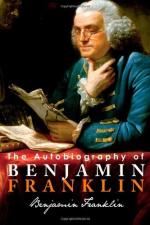|
This section contains 5,660 words (approx. 19 pages at 300 words per page) |

|
SOURCE: '"Why Not Tell the Truth?': The Autobiographies of Three Fiction Writers," in Critique: Studies in Modern Fiction, Vol. XXXII, No. 4, Summer, 1991, pp. 211-23.
In the following essay, Bailey focuses on autobio graphical works by John Updike, Philip Roth, and Tobias Wolff in a discussion of a late twentieth-century trend toward merging fiction and autobiography.
American writers often have found themselves, late in their careers, resorting to the writing of autobiographical narratives. Theodore Dreiser, Sherwood Anderson, F. Scott Fitzgerald, Ernest Hemingway, and Lillian Hellman all succumbed to the lure of recording their actual experiences. Consequently, it is not surprising to find a number of contemporary American fiction writers—Annie Dillard, Reynolds Price, John Gregory Dunne, Richard Ford, John Updike, Philip Roth, and Tobias Wolff among them—turning to autobiography in recent months. What is, perhaps, surprising is that only half of these writers could, even remotely...
|
This section contains 5,660 words (approx. 19 pages at 300 words per page) |

|


